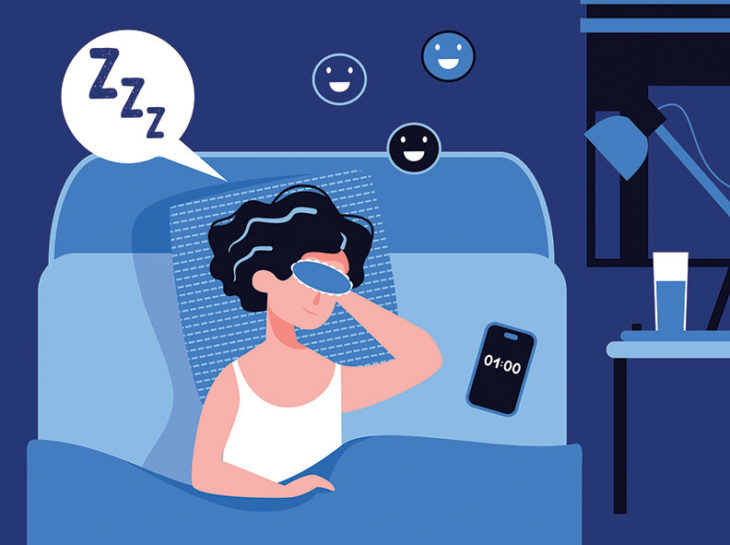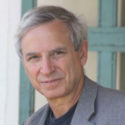Waking up to dawn’s sunlight filtering through our curtains, we stretch and let our dreams dissipate like the morning dew. With seven to eight hours of sleep, our bodies and minds refreshed, we’re ready to face the stresses of the day.
Sleep isn’t just refreshing; it’s necessary to function. During sleep, our minds consolidate the memories we’ve created in the prior day, muscles grow, tissues repair and we synthesize hormones. Adequate sleep improves learning and problem-solving skills. It helps people make decisions, concentrate and be creative.
Sleep occurs in mammals, birds, reptiles, amphibians, some fish and, in some form, insects and simpler animals like nematodes. Sleep needs vary based on species. The armadillo sleeps 20 hours a day, while horses get by with only two. As for humans, infants sleep 12 to 16 hours a day, including napping. Adults need seven to eight hours, and while napping provides a short-term boost in alertness, it won’t provide the other benefits of nighttime sleep.
Those who don’t get enough sleep suffer from sleep deficiency. Ongoing sleep deficiency is linked to heart disease, kidney disease, high blood pressure, diabetes and stroke. Sleep deficiency creates mood disorder, such as short temper and anxiety. It can interfere with our ability to learn, focus and react, as well as judge other people’s emotions. In the elderly, sleep deficiency has been linked to an increased risk of falls. Children who are sleep deficient might be hyperactive, inattentive and demonstrate behavior disorders.
Most people have experienced the feeling of being hungry when they’re sleep deprived. The hormones that create hunger (ghrelin) and fullness (leptin) depend on sleep. Sleep also affects how your body reacts to insulin, the hormone that controls your blood glucose level.
Deep sleep is required for the body to release growth hormone, the hormone that promotes normal growth in children and teens. This hormone also boosts muscle mass and helps repair cells and tissues in children, teens, and adults.
In today’s society, many people have roles that predispose them to sleep deficiency. Caregivers may find their sleep hours eaten up by their duties, as do those working long hours or multiple jobs. Shift workers, first responders, teenagers with early school hours or those taking certain stimulant medications tend to get less sleep. People also can interfere with their sleep needs by drinking caffeine, ingesting alcohol or drugs or just not allowing themselves enough time to rest.
To avoid sleep deficiency, you must set personal rules. It’s best to have a set bedtime, even on weekends and holidays — particularly for children. Use the hour before bed for quiet time by avoiding strenuous exercise and bright artificial light, such as from a TV or a computer screen. Avoid heavy meals within a couple of hours of bedtime. Avoid alcoholic drinks, nicotine and caffeine before bed. Sleeping pills tend to be counterproductive, as they suppress REM sleep and can create addiction and withdrawal issues.
Oversleeping also creates medical issues. According to John Hopkins medicine, oversleeping is associated with diabetes, heart disease, obesity, depression and headaches. However, sometimes extra sleep is necessary, such as when recovering from illness or injury.
Several techniques can improve sleep. Spend time outside every day, and try to get a bit of daily exercise. Keep your bedroom quiet, cool and dark. Take a hot bath or use relaxation techniques before bed. Some people benefit from a bedtime drink, such as hot chocolate or non-caffeinated tea.
Humans spend a third of their lives asleep. Instead of considering it wasted time, recognizing how important it is for our health will help you prioritize sleep over making too many commitments in your life. In closing, let me wish you a good night and pleasant dreams.
RECOMMENDED AMOUNT OF SLEEP PER DAY
Infants
4-12 months: 12-16 hours (including naps)
Children
1-2 years: 11-14 hours (including naps)
3-5 years: 10-13 hours (including naps)
6-12 years: 9-12 hours
Teen
13-18 years: 8-10 hours
Adults
18 and older: 7–8 hours a day
Source: American Academy of Sleep Medicine
Levin is based in Gulfport and has been practicing for 40 years. He graduated from the University of Texas Medical School at San Antonio in 1978 and specializes in emergency medicine. He can be contacted at (228) 867-4000.



